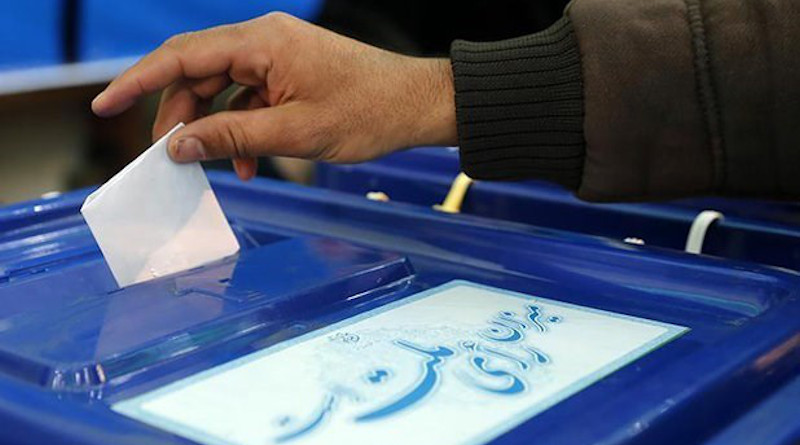Turnout A Key Issue In Iran’s Presidential Election – Analysis
By Dr. Majid Rafizadeh and Arab News
The upcoming presidential election in Iran, scheduled for June 28, has garnered significant attention both domestically and internationally. One of the most critical aspects to observe in this election is the voter turnout.
The Iranian government is keen on ensuring a high turnout for several reasons. Primarily, a high voter turnout would signify robust support for the government, demonstrating that it enjoys the backing of the populace. This is crucial for the government as it seeks to project an image of legitimacy and stability both within the country and on the global stage. In other words, a perception of widespread approval could bolster the government’s legitimacy.
The second issue is related to the current regional tensions. Amid escalating tensions with Israel and the US, a strong voter turnout can be leveraged, from the perspective of the Iranian leaders, to show that the Iranian people are united and supportive of the government’s stance against external pressures.
Third, for the Iranian government, demonstrating a united front through high voter turnout can be crucial in portraying internal stability, particularly in the face of various domestic challenges.
Nevertheless, the most recent parliamentary elections in Iran witnessed a historically low voter turnout, as reported by the Iranian government itself. This trend of low participation raises concerns about the likelihood of a similarly low turnout in the upcoming presidential election. Several factors contribute to this anticipated low voter engagement.
One of the primary reasons for a potential low turnout would be the widespread dissatisfaction with the current economic situation. Iran has been grappling with high inflation and significant unemployment, leading to considerable public discontent. Iran’s official annual inflation rate stood at 47.5 percent last July, the highest level the country has experienced in more than three decades.
The economic hardships faced by ordinary Iranians, including a drastic reduction in purchasing power due to the devaluation of the national currency, have left many living below the poverty line. These economic struggles are likely to deter many from participating in the election, as they may feel that their vote will not bring about the necessary economic reforms and improvements.
In addition to economic woes, there is a pervasive sense of sociopolitical dissatisfaction among the Iranian populace. The imposition of strict religious laws, particularly those affecting women, has previously sparked widespread protests and demonstrations, as witnessed by the international community. The sociopolitical landscape in Iran is heavily influenced by conservative and hard-line ideologies, which many citizens disagree with and view as out of touch with modern societal values. This discontent is another significant factor contributing to the anticipated low voter turnout.
Furthermore, another critical issue is the apparent lack of enthusiasm for the slate of presidential candidates. The Guardian Council, which is responsible for vetting the candidates, has approved only six individuals to run for president: Masoud Pezeshkian, Mostafa Pourmohammadi, Amir-Hossein Ghazizadeh Hashemi, Mohammed Baqer Qalibaf, Saeed Jalili and Alireza Zakani. The limited choice and the preponderance of hard-line candidates have most likely left many voters feeling disillusioned and unmotivated to participate in the elections.
One important aspect of the Guardian Council’s final selection is the dominance of hard-liners among the approved candidates. This has significant implications for the political landscape in Iran, which is now heavily skewed toward hard-line ideologies. These hard-liners are known for their staunch adherence to the revolutionary principles of the Islamic Republic and their advocacy of a more rigid interpretation and implementation of these ideals.
Domestically speaking, hard-liners push for the enforcement of strict religious laws, which has led to widespread dissatisfaction, especially among the youth and women, who feel increasingly marginalized by these policies. The conservative approach to governance adopted by these candidates is also often viewed as a barrier to social progress and modernization.
Regionally, the hard-liners’ views align closely with the objectives of the senior cadre of the Islamic Revolutionary Guard Corps. This alignment suggests a continuation of Iran’s current foreign policy stance, which is characterized by a confrontational approach toward Israel and a defensive posture against perceived threats from the US and its allies.
The outcome of the upcoming presidential election in Iran will have far-reaching implications for the country’s future, both domestically and internationally. The anticipated low voter turnout could further undermine the government’s legitimacy and exacerbate existing socioeconomic challenges. Moreover, the dominance of hard-line candidates suggests that there will be little change in Iran’s domestic and foreign policies.
On the international front, the continuation of hard-line policies could result in increased isolation for Iran, as well as heightened tensions with regional and global powers. This could further strain the Iranian economy and limit the country’s ability to engage in meaningful diplomatic negotiations.
In a nutshell, as Iran approaches its presidential election, one key issue to watch will be voter turnout. The government’s desire for high participation likely clashes with the reality of widespread public dissatisfaction with the country’s economic conditions, sociopolitical issues and the limited choice of candidates. The dominance of hard-line ideologies in the candidate pool further complicates the situation. The results of this election will be a crucial indicator of Iran’s future direction, both internally and on the world stage.

